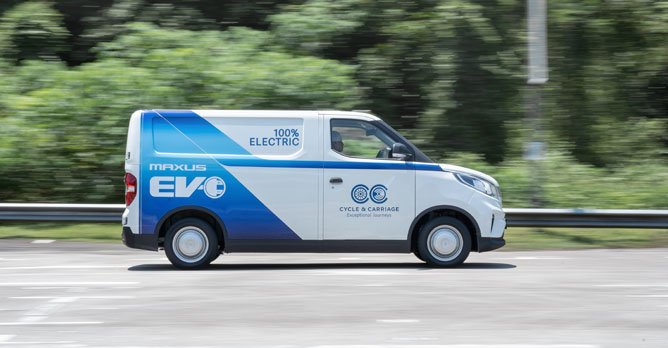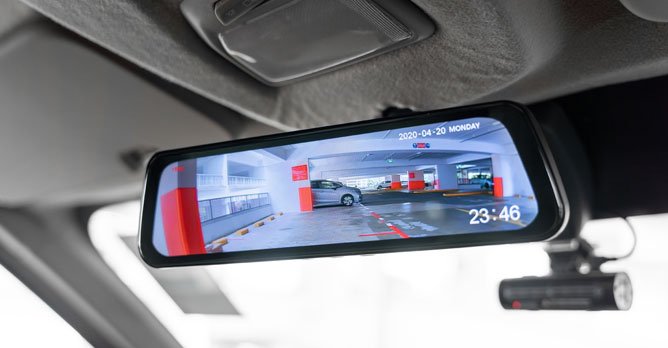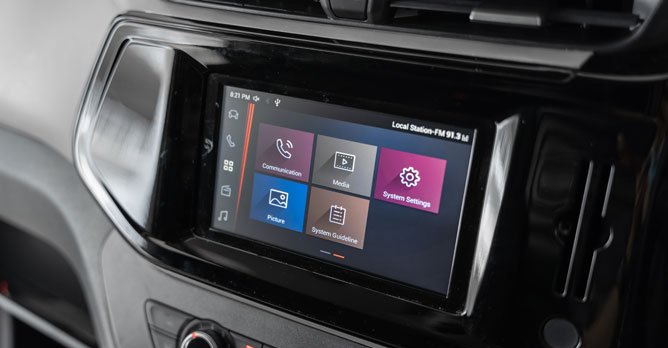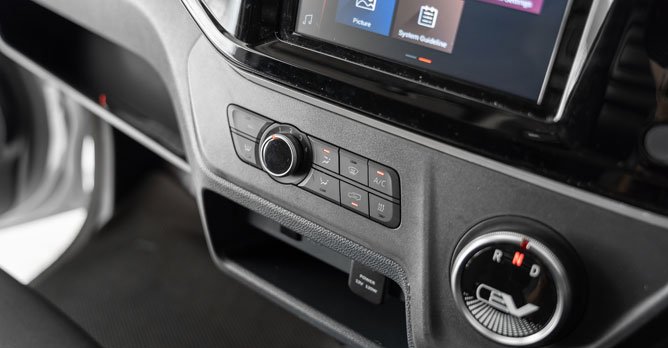Maxus e Deliver 3 Electric [52.5 kWh] (A) Review
27 Apr 2021|9,598 views
What We Like
Strong acceleration all the way to 70km/h
Best loading area and payload capacity amongst electric rivals
No diesel clatter unlike most commercial vans
What We Dislike
Needs better insulation from road noise
No option to set air-conditioning temperature
Needs more range to be used as a full-day delivery vehicle
With COEs for commercial vehicles climbing ever higher and the new Commercial Vehicle Emission Scheme kicking in just this month, businesses are going to find obtaining an affordable logistics solution increasingly difficult.
Thankfully, those willing to adopt a little lateral thinking and go all electric in order to cut on the running costs of their fleet now have a new contender to pick from: Enter the Maxus e Deliver 3.
Heavy lifter
The latest entry into the electric van market however, does not come into the ring as an underdog. Quite the opposite, in fact, for it currently bests the Renault Kangoo Z.E. Electric and the BYD T3 Electric in that all important factor when it comes to deciding upon your logistic vehicle of choice: Cargo carrying ability.
With a payload capacity of 905kg, the Maxus e Deliver 3 easily trumps the other two vans' 640kg and 700kg respective payload capacities.
And it's not just all about weight either, as the Maxus e Deliver 3 also offers a leading cargo floor area of 4,800 litres, beating the Kangoo Z.E. Electric's 4,600 litres and the the BYD T3 Electric's 3,800 litres.
So even if you're looking to transport bulky items, the Maxus makes itself a very convincing option.
And if you're shopping for your team of drivers and don't care one bit about how the van drives then well, the $115,988 (as of 22 April 2021) isn't even asking for much of a premium above the $107,800 of the Renault Kangoo Z.E. Electric or the $105,300 of the BYD T3 Electric.
Urgent Courier
But of course, with delivery services seeing ever-increasing demand here in Singapore, there's also a high chance that many buyers of this van will also be small business owners looking to do their own deliveries.
If that's the situation you're finding yourself in, here's everything else that you'll want to know before heading out to make your purchase.
For a start, the van's electric motor offers up startlingly brisk acceleration. If you're in any fear that your deliveries will not be done on time, let those fears be allayed right here.
The spec sheet may state that there's only 121bhp on offer, but with 255Nm of torque in the e Deliver 3, that critical zero to 70km/h sprint is always effortlessly dispatched. You genuinely will be hardly ever left wanting for more power.
And while you're sprinting around there's even a fairly pleasing turbine-like whine from the motor for some quick entertainment should you bury the accelerator pedal.
Once up to speed, those more used to driving cars will find the Maxus e Deliver 3 one bumpy ride, for sure, but such are the limitations of a suspension designed to carry heavy loads.
There is however a smidgen more body control in this van compared to the slightly smaller diesel-powered Nissan NV200 when driving over larger bumps, a consequence I imagine must be down to the Maxus' lower centre of gravity, thanks to its electric drivetrain.
Road and tyre noise make themselves felt at any speed from within the cabin.
Smooth operator
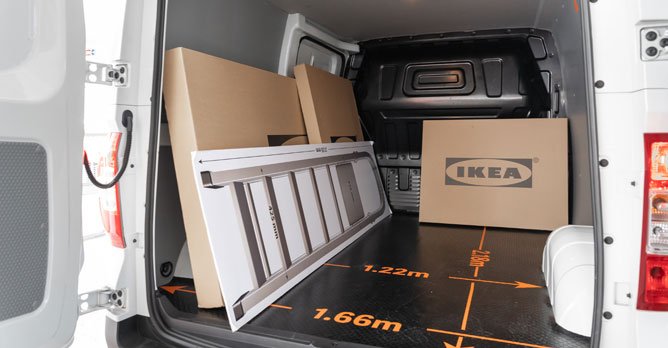
And if your deliveries involve you transporting heavy goods or climbing flights of stairs, you'll also want to note that the Maxus e Deliver 3 does not come with an air-conditioning temperature dial. You'll just have to set the fan speed right up on those sunny days with difficult deliveries.
Cycle and Carriage states that customer models will come with Apple CarPlay, so at least you can play your favourite tunes while cooling down. The Maxus e Deliver 3 also lacks a proper closing glovebox or any locking compartment in the interior, and the doors into the cargo bay do not get locking hinges.
Practical transporter
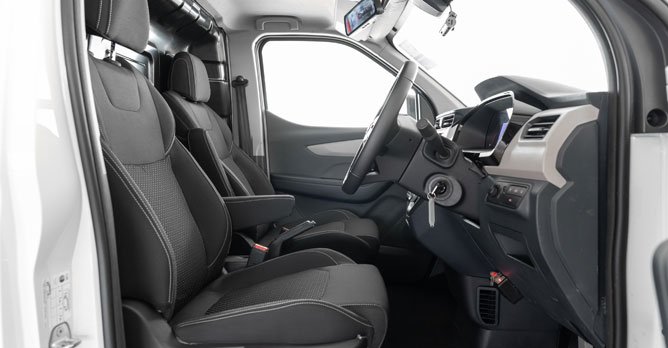
Once you've depleted that battery, charging from a 7.2kW charger to a 100% state-of-charge will take close to seven and a half hours. Fast charging to full at a Shell or SP Group fast charger, meanwhile, will set you back close to $27, and take an hour to complete.
In my estimation, that means that as a delivery vehicle with a full day of driving, inclusive of multiple stops for loading and unloading, you're still only going to be just barely getting the range you need. Charging at said type 2 charger overnight will be necessary for every full day of work if you don't want to make a detour to a fast charger.
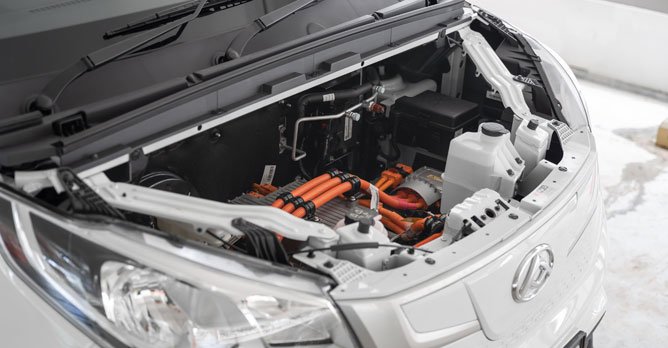
However, if you're looking at the Maxus e Deliver 3 as say, a support vehicle meant only to deliver materials to a worksite and back, this van will easily get the job done while keeping fuel costs at a minimum.
And as an option so you don't have to endure any diesel clatter after a hard day's worth of work? Surely that alone is enough to make this van well worth it.
What We Like
Strong acceleration all the way to 70km/h
Best loading area and payload capacity amongst electric rivals
No diesel clatter unlike most commercial vans
What We Dislike
Needs better insulation from road noise
No option to set air-conditioning temperature
Needs more range to be used as a full-day delivery vehicle
With COEs for commercial vehicles climbing ever higher and the new Commercial Vehicle Emission Scheme kicking in just this month, businesses are going to find obtaining an affordable logistics solution increasingly difficult.
Thankfully, those willing to adopt a little lateral thinking and go all electric in order to cut on the running costs of their fleet now have a new contender to pick from: Enter the Maxus e Deliver 3.
Heavy lifter
The latest entry into the electric van market however, does not come into the ring as an underdog. Quite the opposite, in fact, for it currently bests the Renault Kangoo Z.E. Electric and the BYD T3 Electric in that all important factor when it comes to deciding upon your logistic vehicle of choice: Cargo carrying ability.
With a payload capacity of 905kg, the Maxus e Deliver 3 easily trumps the other two vans' 640kg and 700kg respective payload capacities.
And it's not just all about weight either, as the Maxus e Deliver 3 also offers a leading cargo floor area of 4,800 litres, beating the Kangoo Z.E. Electric's 4,600 litres and the the BYD T3 Electric's 3,800 litres.
So even if you're looking to transport bulky items, the Maxus makes itself a very convincing option.
And if you're shopping for your team of drivers and don't care one bit about how the van drives then well, the $115,988 (as of 22 April 2021) isn't even asking for much of a premium above the $107,800 of the Renault Kangoo Z.E. Electric or the $105,300 of the BYD T3 Electric.
Urgent Courier
But of course, with delivery services seeing ever-increasing demand here in Singapore, there's also a high chance that many buyers of this van will also be small business owners looking to do their own deliveries.
If that's the situation you're finding yourself in, here's everything else that you'll want to know before heading out to make your purchase.
For a start, the van's electric motor offers up startlingly brisk acceleration. If you're in any fear that your deliveries will not be done on time, let those fears be allayed right here.
The spec sheet may state that there's only 121bhp on offer, but with 255Nm of torque in the e Deliver 3, that critical zero to 70km/h sprint is always effortlessly dispatched. You genuinely will be hardly ever left wanting for more power.
And while you're sprinting around there's even a fairly pleasing turbine-like whine from the motor for some quick entertainment should you bury the accelerator pedal.
Once up to speed, those more used to driving cars will find the Maxus e Deliver 3 one bumpy ride, for sure, but such are the limitations of a suspension designed to carry heavy loads.
There is however a smidgen more body control in this van compared to the slightly smaller diesel-powered Nissan NV200 when driving over larger bumps, a consequence I imagine must be down to the Maxus' lower centre of gravity, thanks to its electric drivetrain.
Road and tyre noise make themselves felt at any speed from within the cabin.
Smooth operator

And if your deliveries involve you transporting heavy goods or climbing flights of stairs, you'll also want to note that the Maxus e Deliver 3 does not come with an air-conditioning temperature dial. You'll just have to set the fan speed right up on those sunny days with difficult deliveries.
Cycle and Carriage states that customer models will come with Apple CarPlay, so at least you can play your favourite tunes while cooling down. The Maxus e Deliver 3 also lacks a proper closing glovebox or any locking compartment in the interior, and the doors into the cargo bay do not get locking hinges.
Practical transporter

Once you've depleted that battery, charging from a 7.2kW charger to a 100% state-of-charge will take close to seven and a half hours. Fast charging to full at a Shell or SP Group fast charger, meanwhile, will set you back close to $27, and take an hour to complete.
In my estimation, that means that as a delivery vehicle with a full day of driving, inclusive of multiple stops for loading and unloading, you're still only going to be just barely getting the range you need. Charging at said type 2 charger overnight will be necessary for every full day of work if you don't want to make a detour to a fast charger.

However, if you're looking at the Maxus e Deliver 3 as say, a support vehicle meant only to deliver materials to a worksite and back, this van will easily get the job done while keeping fuel costs at a minimum.
And as an option so you don't have to endure any diesel clatter after a hard day's worth of work? Surely that alone is enough to make this van well worth it.
Car Information
Maxus eDeliver 3 Electric 52.5 kWh (A)
CAT C|Electric|4.3km/kWh
Horsepower
90kW (121 bhp)
Torque
255 Nm
Acceleration
12sec (0-100km /hr)
This model is no longer being sold by local distributor
All Used Maxus eDeliver 3 ElectricThank You For Your Subscription.











































